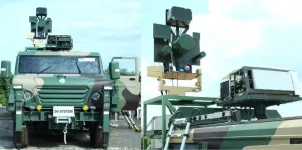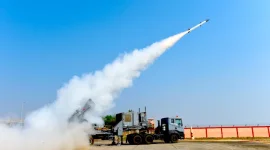- Views: 5K
- Replies: 17

The Indian Air Force's pursuit of new fighter jets under the Multi-Role Fighter Aircraft (MRFA) program has brought American contenders like the F-35, F-16, and F/A-18 Super Hornet into the spotlight.
While these aircraft boast advanced capabilities, persistent concerns about the potential inclusion of a "kill switch" or backdoor technology raise critical questions about sovereignty and operational independence that India must carefully consider.
A "kill switch" refers to a hidden feature or mechanism, often software-based, that could allow the manufacturer or supplying nation to remotely disable or degrade the performance of a weapon system.
While officially unacknowledged by the U.S., numerous incidents and the increasing complexity of software-dependent defence platforms have fueled speculation about its existence in American-made military equipment.
For countries like India that prioritize strategic autonomy, the potential presence of a kill switch raises serious concerns. If the U.S. retains the ability to remotely disable or limit the performance of its fighter jets, it could compromise the operational independence of the procuring nation.
This raises the possibility of U.S. military hardware being rendered inoperable in the event of geopolitical disagreements or sanctions, as seen in cases involving Turkey's acquisition of the S-400 air defence system or Pakistan's limited access to F-16 upgrades.
Past instances have fueled these concerns. After the Kargil War in 1999, the U.S. imposed restrictions on Pakistan's use of F-16s, reportedly requiring U.S. approval for their full utilization. Similarly, Turkey was expelled from the F-35 program after acquiring the Russian S-400 system. These incidents highlight how the U.S. can leverage its military platforms to enforce compliance with its foreign policy objectives.
For India, procuring U.S. fighters like the F-35 or F-15 could create a vulnerability to external control, especially during times of geopolitical tension or conflict. India's defence philosophy emphasizes self-reliance and operational independence, principles that a kill switch would directly undermine.
To mitigate these risks, India must prioritize the following:
- Thorough due diligence: Conducting rigorous technical evaluations to identify and address any potential vulnerabilities.
- Negotiating strong safeguards: Securing ironclad guarantees and agreements that ensure India's complete operational control over acquired platforms.
- Strengthening cybersecurity: Implementing robust cybersecurity measures to detect and mitigate any backdoor vulnerabilities.
- Investing in indigenous programs: Accelerating the development of indigenous fighter programs like the Tejas Mk2, AMCA, and TEDBF to reduce reliance on foreign platforms.




